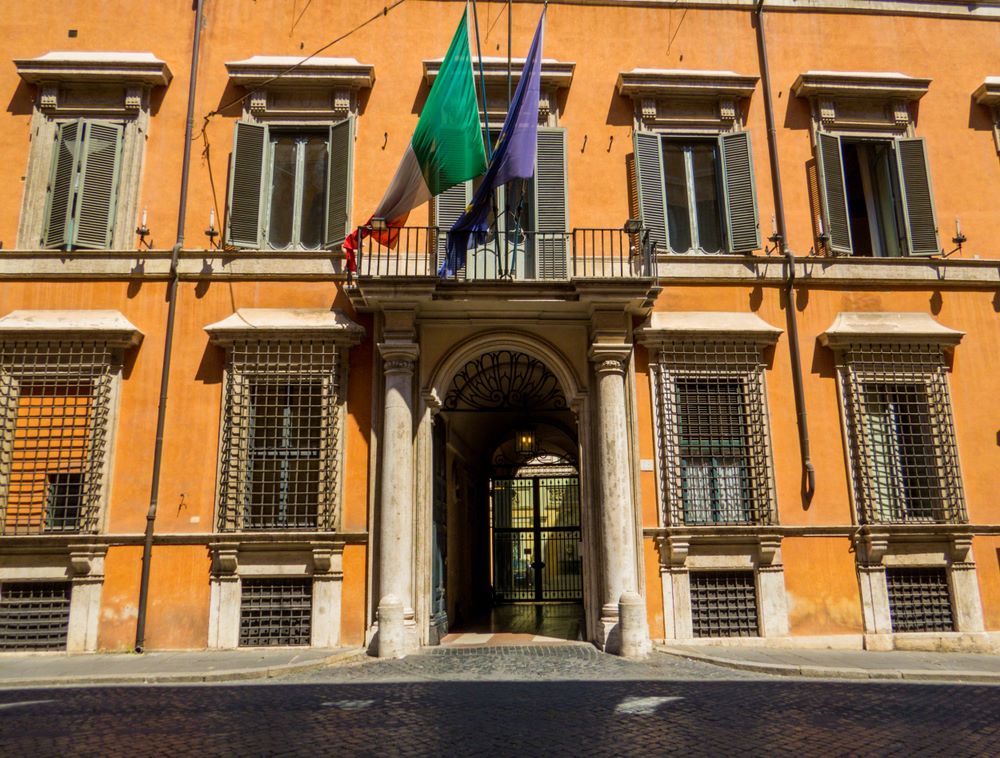The Lazio Administrative Tribunal (TAR) has delivered a significant ruling, dismissing the appeal from the Grand Orient of Italy (GOI), the nation’s largest Masonic organization, which has long sought the return of Palazzo Giustiniani, its historic headquarters. This legal saga, which has stretched for several years, centers on the Palazzo, confiscated by the Kingdom of Italy in 1925, and currently housing the Senate President’s official residence, the offices of former Presidents of the Republic and the Senate, and various administrative offices. The GOI’s hopes for restitution have been dashed once again, as the court ruled in favor of the Senate, declaring the Masons’ claim inadmissible.
The judges identified several inconsistencies in the GOI’s arguments, which included demands for the release of the palace along with damages. A pivotal element in the ruling was a 1926 ministerial decree that granted the State priority rights over the property, effectively making it the legitimate owner of Palazzo Giustiniani. The judges deemed this decree robust and unassailable, a legal anchor the GOI attempted to challenge only in 2020, well beyond the allotted 60-day contestation period. Moreover, they noted that in 1927, the GOI had relinquished its “jurisdictional claims,” thereby acknowledging the validity of the state’s right of first refusal and accepting a sum of four million lire in compensation.
To understand the background, it is essential to travel back to 1901 when the Palazzo on Via della Dogana Vecchia became the GOI’s headquarters, following its purchase by the Masons in 1911. Relations with the government were amicable until the rise of fascism, which dramatically altered the landscape. The 1925 Law No. 2029, dubbed “the most fascist of laws” by Benito Mussolini, banned Freemasonry, leading to the confiscation of Palazzo Giustiniani by the State. The building was subsequently assigned to the Senate, although Masonic members continued to occupy a portion of it through an informal agreement.
In the aftermath of World War II, the GOI made repeated attempts to reclaim the Palazzo, arguing that the 1927 agreement was coerced under fascist duress. However, these efforts have consistently been met with failure. By 1985, the GOI had relocated to Villa del Vascello on Gianicolo Hill, where it remains today, leaving the Senate in full control of Palazzo Giustiniani. A 1991 agreement signed by then-Senate President Giovanni Spadolini promised to allocate 140 square meters of the palace to the GOI, but this commitment never materialized, leading to further litigation and ultimately culminating in the TAR’s recent ruling.
In their decision, the judges noted that the violent acts committed by the fascist regime do not undermine the legality of the administrative acts of the Kingdom of Italy. They clarified that, despite the persecution faced by Masons, the actions of fascist ministries were “inscribed within a legal framework,” and thus remain legally valid, even if enacted under a dictatorship. The GOI’s position sought to demonstrate the illegitimacy of the 1926 decree, claiming it stemmed from the regime’s forced and violent occupation. Having filed its appeal on April 18, 2024, the GOI has indicated it is not ready to relinquish its claims over Palazzo Giustiniani, hinting at potential new legal actions on the horizon. The saga continues, with the Masons seemingly undeterred, perhaps hoping to reclaim their beloved Palazzo—or at least to keep the legal wheels turning!

